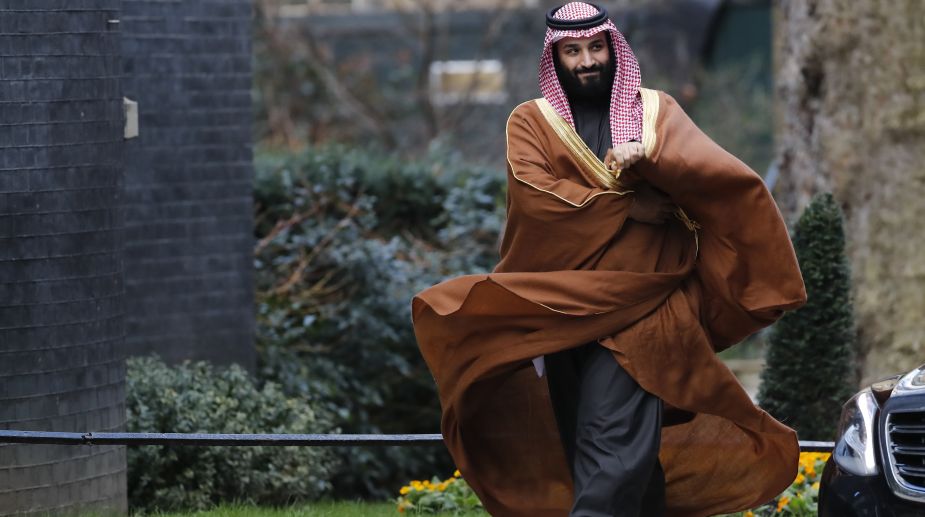Saudi reforms
Critically, this will entail registering a marriage, divorce or a child’s birth, and being issued official family documents.
In a TV interview, Saudi Arabia Crown Prince Mohammad bin Salman cites Sharia law that only says everyone, both men and women, should wear decent and respectful clothing, does not specify abaya or a black head cover

Saudi Arabia's Crown Prince Mohammed bin Salman. (Photo: AFP)
Women in Saudi Arabia do not need to wear headscarf or the black abaya as long as their attire is “decent and respectful”. Crown Prince Mohammad bin Salman has said this in an interview to a US television news channel. With the new crown prince announcing a number of reforms — changes that have been hailed as proof of a progressive trend toward modernisation in the conservative Muslim kingdom — Saudi women now enjoy several rights they did not have earlier.
“The laws are very clear and stipulated in the laws of Sharia: that women wear decent, respectful clothing, like men. This, however, does not particularly specify a black abaya or a black head cover. The decision is entirely left for women to decide what type of decent and respectful attire she chooses to wear,” Mohammad bin Salman told CBS News.
His words are significant, as this means women in Saudi Arabia may not need to cover their head in future as long as their attire is “decent and respectful”.
Advertisement
Saudi Arabia requires women to wear the garment by law as of now.
The kingdom’s religious leaders have not opposed his statement yet, just as in the previous instances when the young prince took decisions that made the country saw an expansion in women’s rights.
Saudi Arabian women have been allowed to attend mixed public sporting events, and they will also enjoy the right to drive cars from this summer.
Earlier this year, senior cleric too had told a TV channel that Saudi women need not wear the abaya in public.
“More than 90 per cent of pious Muslim women in the Muslim world do not wear abayas,” Shaikh Abdullah Al Mutlaq, a member of the Council of Senior Scholars , the kingdom’s highest religious body, had said, adding: “So we should not force people to wear abayas.”
In his interview to CBC, Mohammad bin Salman said people of Saudi Arabia, especially his generation, had been victims of “religious extremism”. According to him, all problems started in 1979 when religious extremists in Saudi Arabia took over the Grand Mosque in Mecca, soon after the Ayatollah Khomeini established an Islamic theocracy in Iran.
He claimed the Saudi Arabia of the last 40 years was not the real Saudi Arabia. “We were living a very normal life like the rest of the Gulf countries. Women were driving cars. There were movie theaters in Saudi Arabia. Women worked everywhere. We were just normal people developing like any other country in the world until the events of 1979,” he told the channel, which posted the transcript of the interview on its website on March 19.
The crown prince is known to have said earlier that he wants to take Saudi Arabia “back to what we were, a moderate Islam”.
Asked if he believed women were equal to men, he replied: “Absolutely. We are all human beings and there is no difference.”
“We have extremists who forbid mixing between the two sexes and are unable to differentiate between a man and a woman alone together and their being together in a workplace. Many of those ideas contradict the way of life during the time of the prophet and the Caliphs. This is the real example and the true model,” said Salman.
In Saudi Arabia, it’s easier for women now to start a business venture, they can join the military, and also attend concerts besides sporting events. His economic council too has a few women.
The crown prince also spoke about the world’s perception of Saudi Arabia as the country that gave the world Osama bin Laden, and how he planned to change that. He shared his thoughts on the country’s financial situation, its “addiction” to oil, and the challenges he is facing.
“There’s a lot of challenge. I think the first big challenge that we have is do the people believe in what we are doing,” said Mohammad bin Salman.
Advertisement